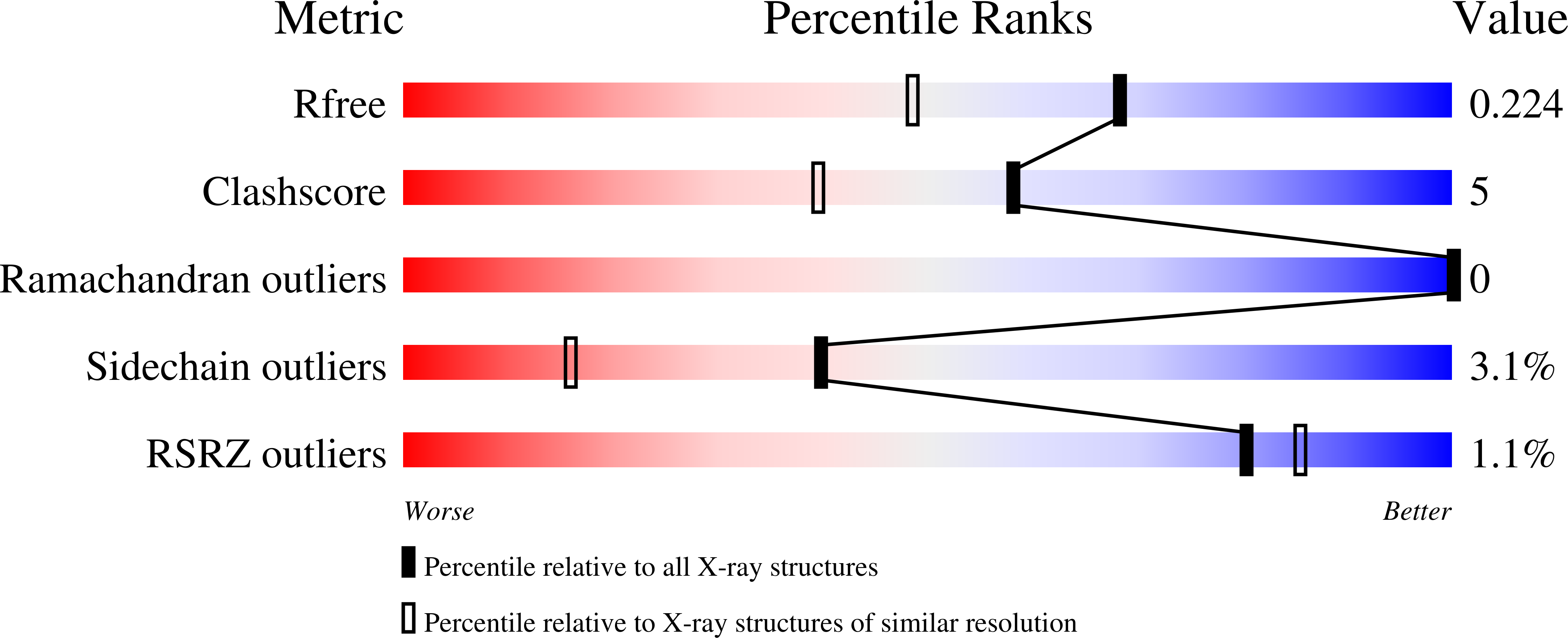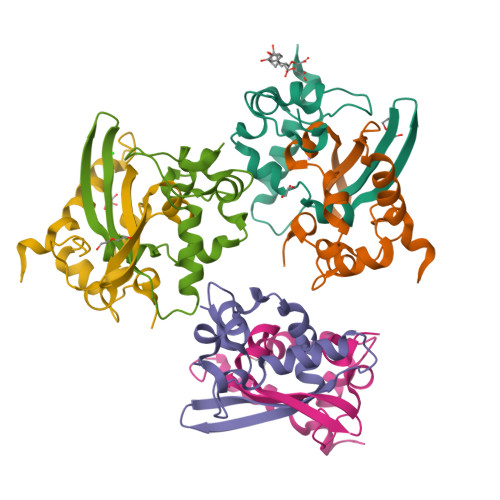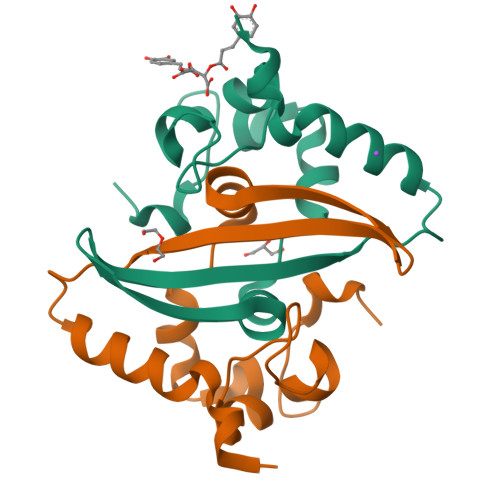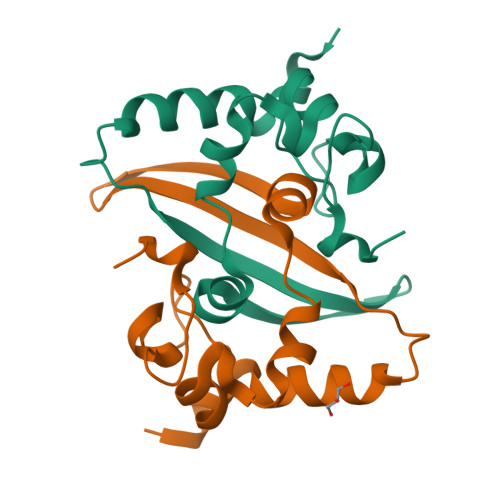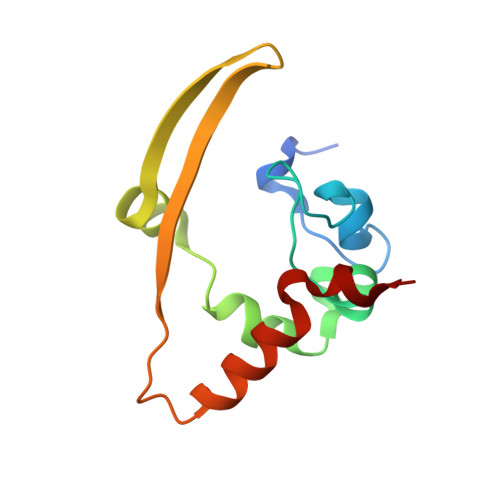Discovery and structural characterization of chicoric acid as a SARS-CoV-2 nucleocapsid protein ligand and RNA binding disruptor.
Mercaldi, G.F., Bezerra, E.H.S., Batista, F.A.H., Tonoli, C.C.C., Soprano, A.S., Shimizu, J.F., Nagai, A., da Silva, J.C., Filho, H.V.R., do Nascimento Faria, J., da Cunha, M.G., Zeri, A.C.M., Nascimento, A.F.Z., Proenca-Modena, J.L., Bajgelman, M.C., Rocco, S.A., Lopes-de-Oliveira, P.S., Cordeiro, A.T., Bruder, M., Marques, R.E., Sforca, M.L., Franchini, K.G., Benedetti, C.E., Figueira, A.C.M., Trivella, D.B.B.(2022) Sci Rep 12: 18500-18500
- PubMed: 36323732
- DOI: https://doi.org/10.1038/s41598-022-22576-4
- Primary Citation of Related Structures:
7UXX, 7UXZ - PubMed Abstract:
The nucleocapsid (N) protein plays critical roles in coronavirus genome transcription and packaging, representing a key target for the development of novel antivirals, and for which structural information on ligand binding is scarce. We used a novel fluorescence polarization assay to identify small molecules that disrupt the binding of the N protein to a target RNA derived from the SARS-CoV-2 genome packaging signal. Several phenolic compounds, including L-chicoric acid (CA), were identified as high-affinity N-protein ligands. The binding of CA to the N protein was confirmed by isothermal titration calorimetry, 1 H-STD and 15 N-HSQC NMR, and by the crystal structure of CA bound to the N protein C-terminal domain (CTD), further revealing a new modulatory site in the SARS-CoV-2 N protein. Moreover, CA reduced SARS-CoV-2 replication in cell cultures. These data thus open venues for the development of new antivirals targeting the N protein, an essential and yet underexplored coronavirus target.
Organizational Affiliation:
Brazilian Biosciences National Laboratory (LNBio), Brazilian Centre for Research in Energy and Materials (CNPEM), Campinas, SP, 13083-100, Brazil.







